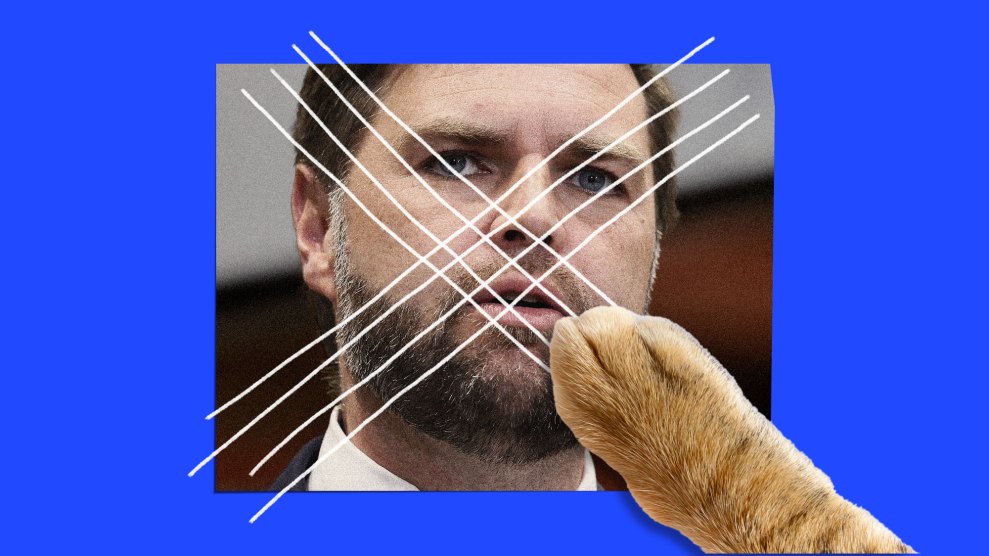
Mother Jones illustration; Adam Bettcher/Getty; Getty
By now, many Americans know what Donald Trump’s running mate, Sen. JD Vance (R-Ohio), has said about women without kids—or, as he calls them, “childless cat ladies”: He has alleged they are miserable; that they generally do not support families; and that they deserve less voting power than people with kids.
Now, new data surveying the demographic targeted by Vance—women without kids, including women who own cats—makes it abundantly clear just how wrong Trump’s VP pick was about their political priorities. The gender justice advocacy organization National Women’s Law Center Action Fund and the polling firm Morning Consult surveyed more than 1,700 registered voters nationwide on August 1 and 2 and found that women without kids—including those with cats—support policies supporting children and families as much as, if not more than, parents and voters overall.
The study, shared first with Mother Jones, also found that 62 percent of women without kids who have cats and 51 percent of women without kids overall strongly agree that “supporting families and children should be a top priority for the federal government,” compared with 49 percent of parents and 47 percent of voters overall. And as for Vance’s claim that “childless cat ladies” are “miserable?” Yeah…they’re not. The survey found 32 percent of these so-called “childless cat ladies” said they are “very happy,” compared to 27 percent of voters overall.
The findings also highlight a particular irony: Most women without kids support specific pro-family policies that Vance does not. Fifty-three percent of women without kids, for example, said they believe “guaranteeing access to child care for everyone who needs it” should be a very important government priority, compared to 52 percent of parents and 51 percent of voters overall. Vance, on the other hand, has called universal daycare “class war against normal people” and suggested women’s rightful place is in the home. “If your worldview tells you that it’s bad for women to become mothers but liberating for them to work 90 hours a week in a cubicle at the New York Times or Goldman Sachs, you’ve been had,” Vance posted on X after the Dobbs decision in June 2022. The same dissonance appeared in support for paid family and medical leave, with the survey respondents expressing strong support for such policies, while Vance has never appeared to support them.
And more than 50 percent of both childless cat women and parents said they believe “re-expanding the Child Tax Credit to help low- and middle-income families make ends meet and to help reduce child poverty” should be a very important priority for the government, compared to 47 percent of childless women overall and 48 percent of voters overall. Vance has recently claimed he would support increasing the child tax credit to $5,000, but experts say that would be hard to enact—and Vance did not even show up for a Senate vote earlier this month on a bill that would expand the child tax credit to $2,000 per child. (Sen. Ron Wyden (D-Ore.), one of the bill’s co-sponsors, blasted Vance as a “phony.”)
Spokespeople for Vance—who has since tried walking back his “cat ladies” comment amid the ire it sparked, particularly among Americans who don’t have kids—did not respond to repeated requests for comment.
To experts, the findings are not surprising. “It makes sense that women without children would support policies like affordable childcare and paid family leave because they recognize that care links all of our fates,” said Jessica Calarco, professor of sociology at the University of Wisconsin-Madison and author of the book Holding It Together: How Women Became America’s Safety Net.
Peggy Heffington, a historian based at the University of Chicago and the author of Without Children: The Long History of Not Being a Mother, said she sees a cause for hope in the findings: “People who don’t have kids are having empathy and wanting to support people whose lives don’t look like theirs.” That’s a lesson that Vance could stand to learn.















